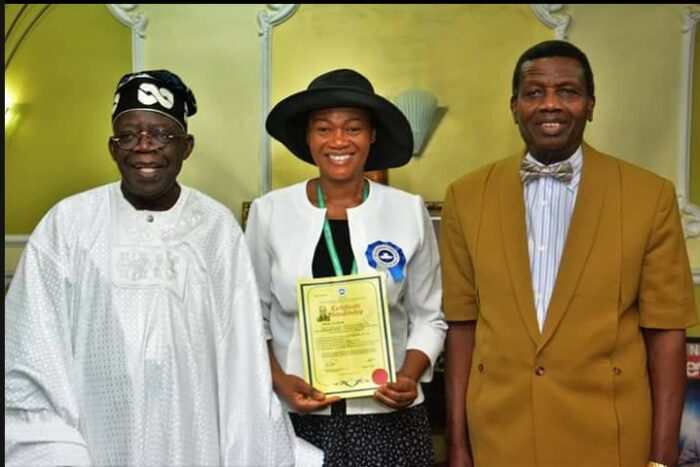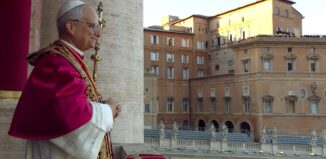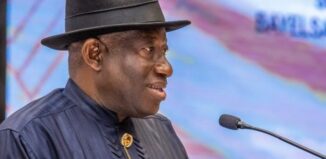NIGERIANS have ex-military heads of state Ibrahim Babangida and Abdulsalami Abubakar to thank for reviving the School of Politics popular in tertiary institutions. In the 1970s and 80s, some Nigerian universities boasted about their Schools of History, Schools of Politics, and Schools of Economics, for instance, such as the University of Ibadan and Ahmadu Bello University. Scholarly works of course accompanied the labels. It is perhaps nothing more than coincidence, but by echoing each other from the same neighbourhood in Minna, Niger State, the two ex-military leaders’ recommendation on the age factor as a prerequisite for the 2023 presidency gives the impression of a Minna School of Politics. Neither Minna nor the Hilltop residences of both leaders qualified for the label, but it is significant that of all the factors that should guide the election of the next president, age seems to preoccupy the minds of the two leaders.
Was it the issue of public mood so conspiratorially spoken of by the Peoples Democratic Party (PDP) in zoning or not zoning the presidency for 2023 that guided Generals Babangida and Abubakar in settling so definitively on age as a leading factor in determining who should aspire and win the presidency? Neither retired generals gave any indication that their view was not guided by their private assessment of the convoluted elections ahead of Nigeria. The point is that they both believe that age is crucial for the next presidential poll, and that the age in question should not exceed anyone in his sixties. Might 69 years be okay then? And what is the difference between 69 and 70? Both Arise Television and Daily Trust Television that interviewed Gen Babangida in 2021 and January this year respectively did not take the former leader to task on the age question. Gen Abubakar on the other hand merely spoke on camera when an aspirant for the presidency, owner of Kaftan TV, Prince Adewale Adebayo, sought his prayers and support. No elucidation of the age factor was also forthcoming from the former head of state.
According to the general, “Indeed, Nigeria needs the younger generation to take over from us the older generation. Like you rightly said, the world is going digital and I believe the younger generation is more exposed internationally in ICT than the older generation. I am happy that you are thinking of moving the country forward, and I believe with your ideologies and your youthful and vibrant ambition I think Nigeria is on the right part and wish Nigeria will be great. Nigeria with a population of over a 200million certainly is a great country and such leadership will go a long way to make it a greater place…You can count on our support always trying to do the right thing.” The social media may have dramatised and simplified the qualifications for the presidency, not only in Nigeria but all over the world, yet it is no excuse for a former head of state to elevate the so-called public mood to the level of policy or science. Leadership, particularly sound leadership, is too complicated to be trivialised or surrendered to indeterminate and capricious public mood.
Last August and again this January, Gen Babangida reiterated the age factor as the major critical component in electing the Nigerian president. He was consistent. “I have started visualising a good Nigerian leader,” he told Arise Tv last August. “That is, a person, who travels across the country and has a friend virtually everywhere he travels to and he knows at least one person that he can communicate with. That is a person, who is very verse in economics and is also a good politician, who should be able to talk to Nigerians and so on. I have seen one, or two or three of such persons already in his sixties.” Then last month he also explicated his view on age during an interview with the Daily Trust TV. Said he: “Any person who fits in within these criteria, then he is the right person as long as he is a Nigerian: he is a politician, he is not old like I am, he is very conversant with the country, he communicates, and he is a very good communicator. He should be able to communicate because a president should be able to walk into a group of people and talk to them on issues concerning Nigeria; not all the time, but most of the time. He must have somebody he knows in every part of the country. It is not a tall order.”
The communication bit was the only difference between the two retired generals, partly, it seems, because Gen Babangida, when he was in power, loved to hear himself speak. Gen Abubakar had no patience with fine speeches. He was practical, direct and less given to humbug. Had Gen Babangida, however, qualified his ‘communicator’ recommendation to include the issue of substance, ethics and breadth of discourse, his suggestion might have been redeemed a little. In his years in power, he doubtless proved himself a communicator, not of stupendous gift to be sure, but a passable one that at least entranced an indulgent and uncritical country. He did not match his communication skills with substance, as he has again shown in the two interviews in reference, but he got away with murder so to speak by taking the country on a merry-go-round and a wild-goose chase that eventually miscarried badly and predisposed the country to ruin.
Between them, the two former heads of state spent about nine years in the presidency, albeit unelected. They ought to have known enough by practical experience and study, assuming they had the time and the patience for both or either, to author a book or occasional disquisition as the country’s mood and tumultuous events demand, on leadership. But it takes much rigour, farsightedness and deep study to apply oneself to a task that is nothing but ‘tall order’, to borrow Gen Babangida’s words in the Daily Trust interview. Nigerians should be drinking from the primeval springs of wisdom of both officers who had the distinguished honour of leading the country as military officers and contributing to its stability and peace as civilians. Their fixation with age, of all the factors conducing to leadership, let alone great leadership, is hard to explain or justify. Perhaps their memoires should still be expected. And it is hoped that the memoires would be original and educative, in fact classical.
Given the amorphousness of the so-called public mood so inelegantly referenced by the PDP in determining where and perhaps who the next president would be, it is not clear what role religion will play in determining the next president. Former leaders, including Generals Babangida and Abubakar, have been fairly reticent on the subject. They would be scalded should they attempt to tackle it dispassionately, honestly and futuristically. Yet, the issue cannot be avoided. If it does not come into play as a factor in who takes the party ticket and wins the presidency, it will be relevant for who becomes running mate and just how adept he is at mining non-secular and often jaundiced feelings. Yet for most of the developed world, as this column argued some weeks ago, neither age nor religion has been a significant factor in the emergence of their leaders – not in China nor in Russia, and not in France nor in Singapore, and certainly not in the days of empires replete with either warrior-kings or philosopher-kings. But whether on social media or outside of it, expect in the months ahead animated discussions on the age and religion of the next president. The oppressive and loathsome burden of poverty will not dissuade the electorate from emphasising, embracing, explaining and justifying the incomprehensible.
There are insinuations that last Sunday’s Lagos meeting of governors, ex-governors and other stakeholders, including businessmen, across the various sectors might have been inspired by the same totem of public mood. That mood, deciphered and perhaps deconstructed outside the public glare by the stakeholders, was probably meant to serve the purpose of selling a particular 2023 agenda. They hope to create a critical mass of believers in the agenda which would eventually be sold to the nation as an altruistic plan to save the nation from doom. But there is nothing altruistic about the agenda, not even the generational shift they hope to midwife. Though they have the two aforesaid generals as silent inspiration, and the social media as malleable tool, the agenda is unlikely to fruit. The so-called stakeholders have kept sealed lips over what transpired at the meeting, but those quivering lips will not stay sealed for long.
Both the APC and PDP have their shortcomings, and their leaderships have been scheming and sometimes cultic. But they at least do not operate in the strictest sense of a camorra. Before the primaries are held sometime in the third quarter, many groups, army generals and other nondescript stakeholders will attempt to foist their 2023 agenda on the nation. Whether they will succeed will depend on how susceptible to propaganda and fearmongering the people have become due to decades of oppression and impoverishment. Age and religion will just be two discredited tools out of a plethora of disingenuous measures designed to obstruct Nigeria’s march forward.



